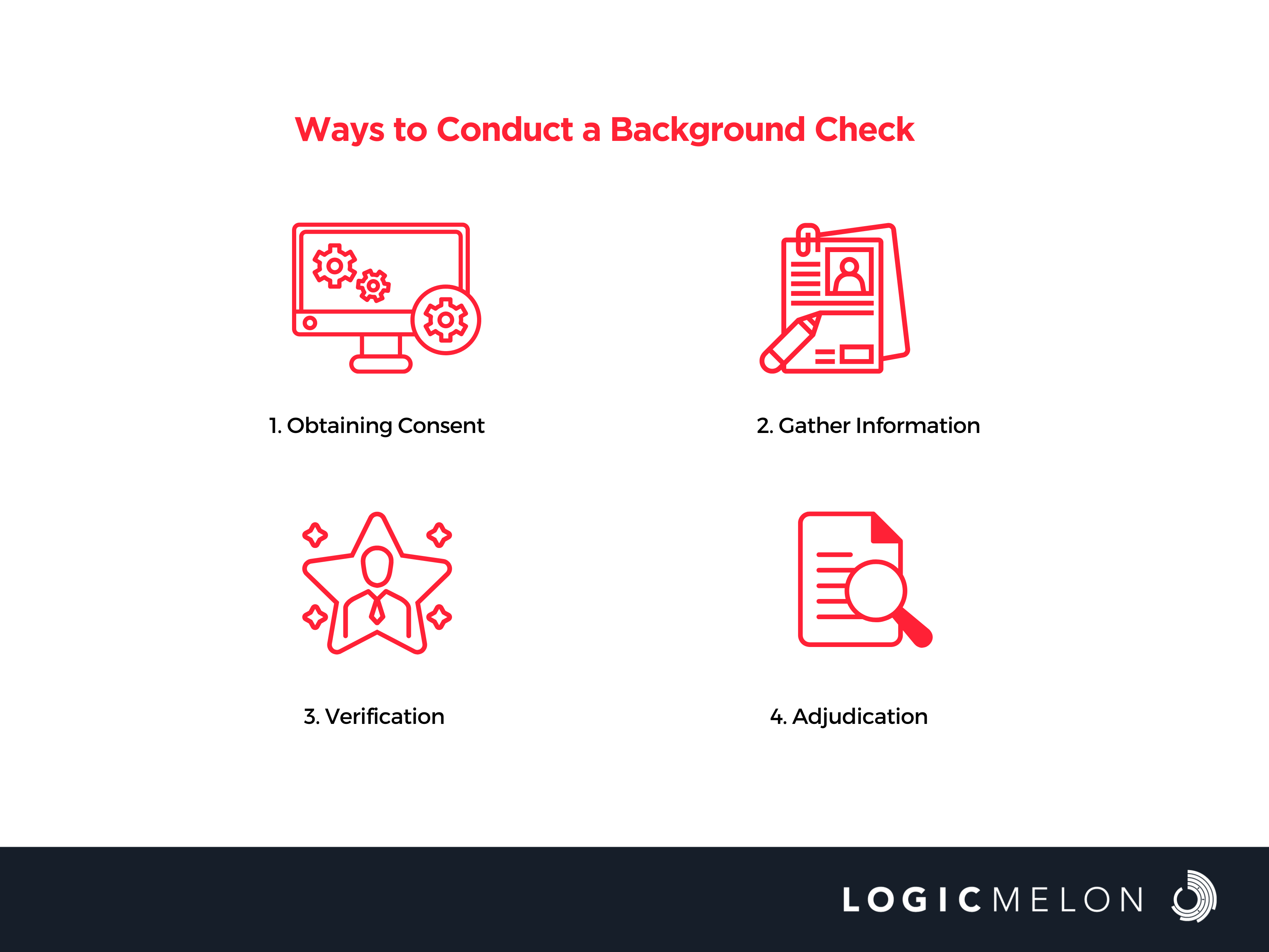A Guide to Employee Background Checks
Are you in the process of onboarding an employee? But hold on a second! Have you performed a background check? It’s absolutely crucial to run a background check, even if your potential hire seems like the crème de la crème of the job market. Employee background checks are a vital tool in safeguarding your workforce against any unsavoury characters. In this blog, we’ll delve into the reasons why background checks are a must, explore the differences between background and reference checks, examine various types of background checks, highlight why they’re a crucial part of the hiring process, and provide some ways to conduct them.
Reasons for Background Checks
Picture this, mate: the main reason for conducting a background check is to ensure that your candidate doesn’t have a dodgy criminal record. A background check helps to avoid any potential risks and enables you to make informed hiring decisions. Without a proper background check, you’re left with only what the applicant has provided, and you’ll have to base your decisions solely on that.
So, why go through the trouble of running background checks, you ask? Well, let’s have a gander at the benefits.
What is the difference between reference and background checks?
Now, pay close attention, my dear readers. The distinction between background and reference checks is crucial. You see, when an organisation conducts a background check, they’re essentially verifying an individual’s identity, education, work history, and criminal record. On the other hand, reference checks are a means to suss out the right candidate and avoid hiring someone with a track record of poor performance or questionable behaviour.
Background checks are a necessary evil to ensure a candidate’s financial history, behaviour, and previous performance are all up to snuff.
Why is a UK Background Check a Key Part of the Hiring Process?
1. Reduces Risk
Listen up, chaps! Background checks reduce the risk for employers and help them steer clear of candidates with a criminal past. Let’s say you’re looking to hire a cashier. It goes without saying that you’d want to avoid hiring someone with a history of light fingers, even if they seem to have all the necessary skills, qualifications, and experiences. A background check helps you eliminate such potential risks.
2. Improved Hiring Decision
Think of background checks as your secret weapon in making improved hiring decisions. Employers rely on background checks to ensure they choose the best employee who meets all the necessary criteria to work for their esteemed organisation. Sometimes, a background check might reveal a minor traffic violation for an otherwise stellar accountant. Such a revelation won’t affect their work performance but allows you to make an informed decision.
3. Verify Candidate Credentials
Background checks help in sniffing out any misrepresentations, errors, or omissions on the candidate’s part when they submit their credentials. Employers conduct these checks to determine if an employee meets all the legal requirements. Sure, a candidate may appear perfect on paper, but if they fail to meet any conditions during the background check, they’re simply ineligible.
What Are The Different Types Of Background Checks?
Now that we’ve got that sorted, let’s have a chinwag about the different types of background checks. Employers need to assess the roles and responsibilities associated with the position when deciding which checks to carry out. Here are the key ones:
1. Identity Verification
Identity verification is the bread and butter of background checks. It’s the basic form that’s typically done to comply with legal requirements. You can never be too careful, as some cheeky candidates may try to fake their identity. This check ensures that employees have the necessary experience and skills.
2. Criminal Record Checks
Ah, the criminal record check! This little number provides you with a candidate’s criminal history, if they have any, that is. It’s important to understand the implications of using criminal records when making employment decisions. Keep an eye out for any scoundrels!
3. MVR Reports
If the position involves driving, then MVR (Motor Vehicle Record) reports are a must. 74% of employers background check applicants’ driving records.
These reports provide a candidate’s driving history, including information about their driving licence such as expiration and start dates. It’s all about ensuring road safety, you know.
4. Credit Background Checks
Credit background checks provide a sneak peek into an employee’s financial standing and credit history. It’s a valuable tool in verifying a candidate’s financial responsibility, especially if they’ll be handling company funds. We can’t have anyone with a penchant for financial misadventures, can we?
5. Social Media Background Checks
Now, this one’s a interesting check, chaps! Social media background checks involve scouring a candidate’s online activity for any red flags, like online bullying or hate speech. By reviewing their social media accounts, employers can gain insights into their personal lives and determine if they’d be a good fit for the company’s work culture. It’s a tad like being your own online detective!
6. Education Verification
Last but not least, we have education verification. Employers conduct this check to verify a candidate’s qualifications, educational history, and records. After all, we can’t have people pretending to be Oxford graduates when they barely passed the Year 8 maths exam, can we?
Ways to Conduct a Background Check
Alright, let’s get down to business! Here are some ways to conduct a background check:

1. Obtaining Consent
Before you embark on your background-checking adventure, make sure you have the candidate’s consent. This check is typically conducted during the final stages of the recruitment process, once the candidates have successfully sailed through the initial screening.
2. Gather Information
Once you have the candidate’s green light, it’s time to gather information. Dig into their records, explore online databases, and scrutinise their resumes. The game’s afoot, dear reader!
3. Verification
With all that valuable information in hand, it’s time for verification. This step involves confirming the candidate’s previous workplace roles, employment dates, and duration. It’s all about ensuring they haven’t been pulling the wool over your eyes, old chap.
4. Adjudication
Ah, the final step. This phase determines whether the candidate will be a suitable representative for your esteemed organisation. A proper adjudication policy ensures consistency, fairness, and compliance. Analyse the candidate’s background check results and assess their potential impact once they’re on board. It’s time to separate the wheat from the chaff!
Frequently Asked Questions
1. Why do employers conduct background checks?
Employers conduct background checks to verify the accuracy of candidates’ job application forms, thus improving their hiring decisions. These checks provide valuable data such as criminal history and employment verification. We must be ever-vigilant, you know!
2. Which information cannot be gathered from background checks?
Background checks won’t tell you how knowledgeable a candidate is about job-specific topics, their job responsibilities and description, or how well they’ll fit into your company culture and work ethic. That’s for you to discover through other means like interviews and assessments, my good friend!
3. What are the red flags on background checks?
Oh, those pesky red flags! During background checks, potential warning signs include criminal history, unexplained gaps in work history, a lack of proof regarding educational qualifications, and discrepancies when verifying employment history with previous employers. And let’s not forget about those traffic violations! If you’re hiring a truck driver, it wouldn’t be wise to bring on board someone with a knack for breaking traffic laws.
Closing Thoughts
There you have it, folks! The importance of employee background checks cannot be overstated. We live in a world where employees may try to fake their identities, hide information, or provide incorrect facts. That’s why employers conduct background checks to verify a candidate’s identity, educational qualifications, credit history, and criminal record. While it’s true that past behaviour may not always be an accurate reflection of a person’s present or future actions, it’s essential for employers to minimise risks whenever possible. So, before welcoming someone into your organisation, remember to request those background checks to ensure they won’t become a liability.
LogicMelon
Award-winning recruitment software that will find, attract, hire and analyse the way you want to work. At LogicMelon, we have experienced software recruitment marketing specialists to help you build effective recruitment solutions supported by the best customer service you’ll find anywhere!
Email: sales@logicmelon.com or call LogicMelon (UK) +44 (0) 203 553 3667 (USA) +1 860 269 3089
Best Practices to Rehire your Former Employees
When an organisation rehire a former employee they already know their personality, work ethic and reason for leaving the organisation.
What is Staffing? Definition, Importance and Objectives
Staffing involves recruiting, selecting, promoting and transferring the right person for the right role in the organisation.
10 Tips to Succeed On The Spot Interview
The on-the-spot interview is a planned event where all the candidates appear simultaneously and are questioned on the spot.


